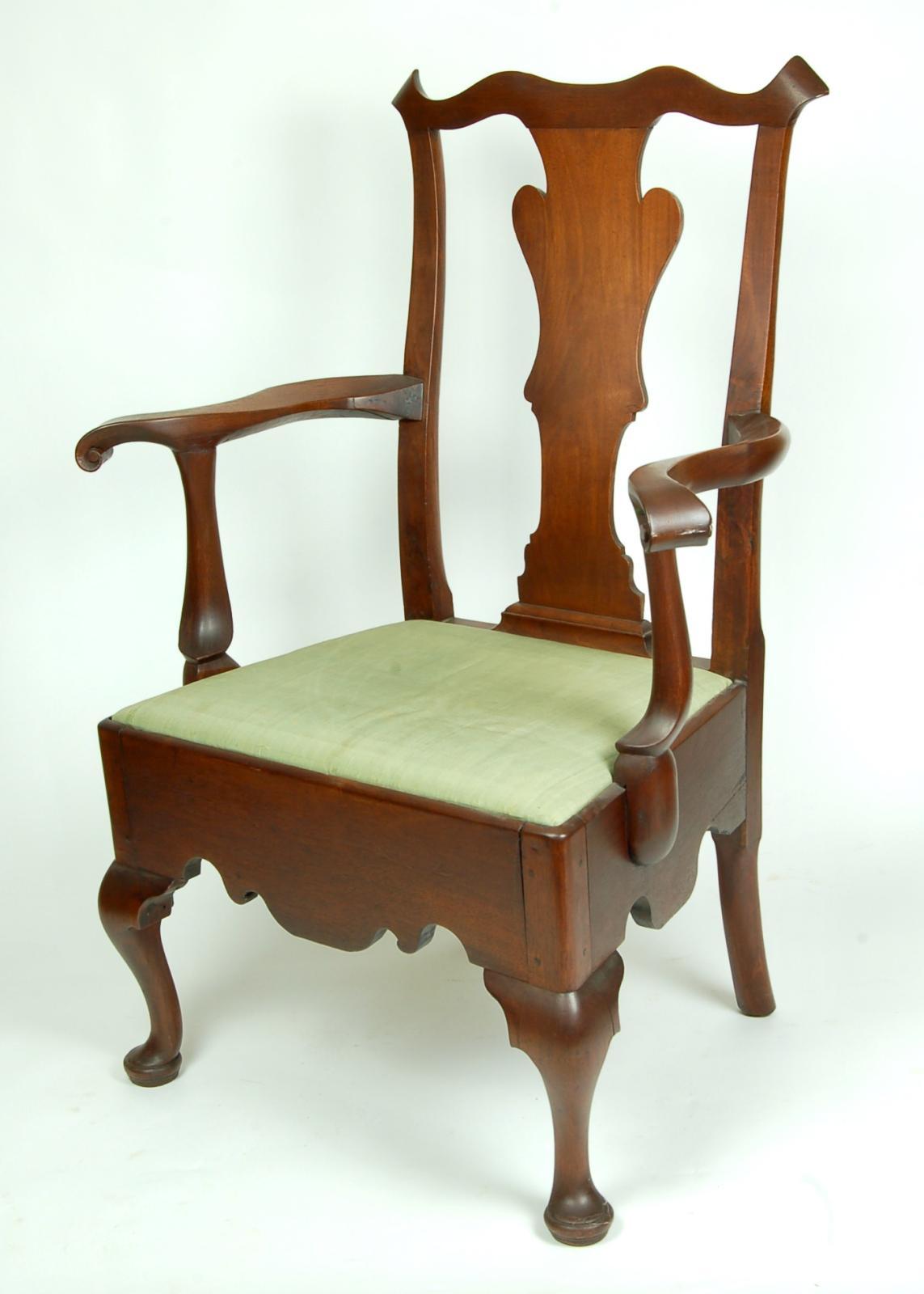Chamber armchair
Delaware Valley, possibly Philadelphia
1750-1770
Measurements
40 in x 30-1/2 in x 22 in
Materials
Walnut; tulip poplar (slip seat)
Credit Line
Historic Odessa Foundation, gift of H. Rodney Sharp
Accession Number
1958.3250
Inscription
“I” is chiseled into the front seat rabbet at the center.
Condition Notes
The chair survives in excellent condition.
Provenance
Ex coll. H. Rodney Sharp
Comments
This armchair combines a mix of early and late Queen Anne style features as well as urban and non-urban features. The wavy or serpentine crest rail with ears projecting into space is the latest feature and the basis for the earliest date of the chair. The chair back has a gentle S curve front-to-back, which tends to be an early feature. Similarly, the cabriole legs have turned pad feet. Another relatively early feature is the shape of the arms, which have a soft notch at the elbow. Among urban features, the arm supports are beautifully carved, as are the volutes of the handholds. As was common, volutes are carved only into the front face. Non-urban features include the very deep seat rails, design to hide a chamber pot. The rails have no molding cut into the top edge. The rear rail is especially deep, measuring 6 inches. The decorative outline of the seat rails is ambitious and not as successful as some. Similarly, the splat lacks visual engagement. Deeper cuts there, rather than in the skirt, would have created more interest.
The armchair retains strips of wood around the insides of the seat rails to support a chamber pot deck. Double tenons attach the side seat rails to the rear stiles. The rear stump legs are rounded, rather than chamfered. The slip seat is made of tulip poplar; Philadelphia-made slip seats are typically made of hard pine.
